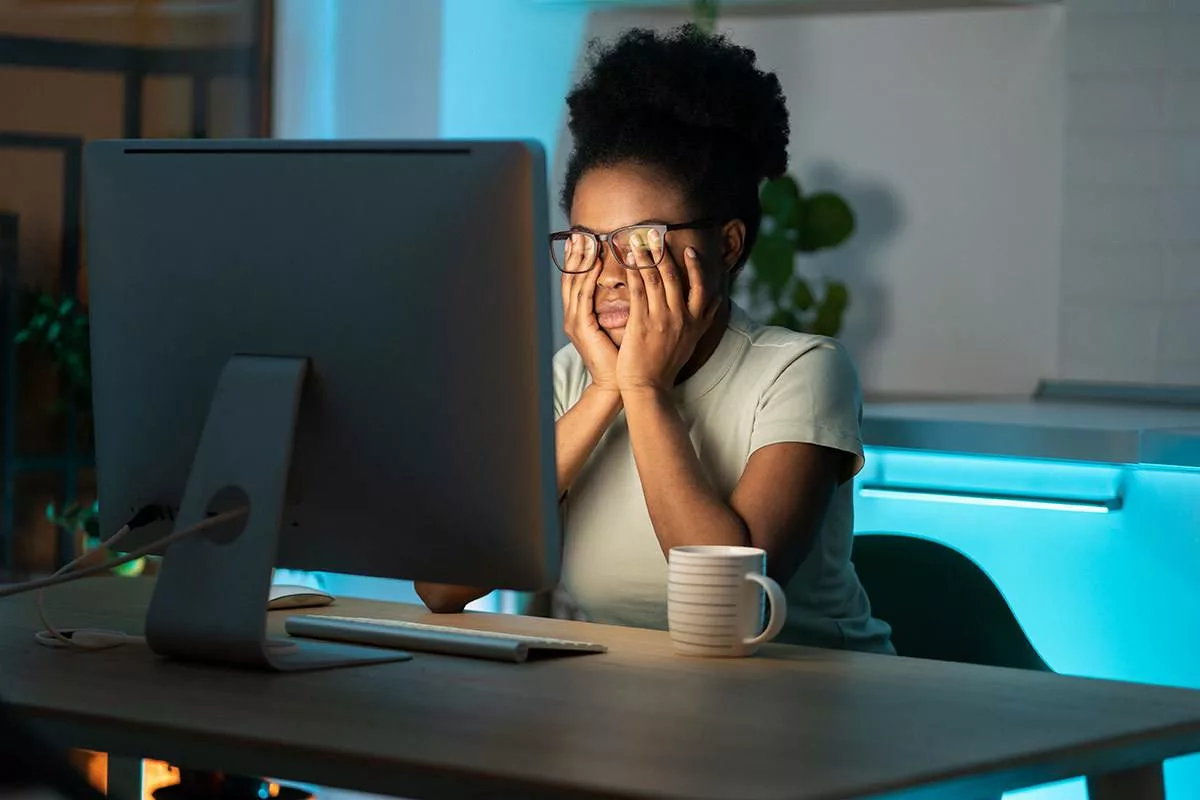As more lives are being experienced online, screens have become part of the day. With the computer and TV, smartphone and the tablet, the average person spends a good number of hours a day staring at screens. As many benefits as technology has in terms of access to information and being connected to individuals, excessive screen time can cause our eyes’ health to deteriorate badly. Moderate screen time is essential at the center of healthy eyes and overall well-being, according to research.
Some of the most prevalent disorders that come with excessive screen time are digital eye strain, or computer vision syndrome. The issues of the condition vary from dry eyes to blurred vision, headache, and difficulty in focusing. The American Optometric Association discovered that nearly 70% of adults experience some form of digital eye strain, particularly those consumers who have been in front of screens for an extended period. We blink less when we use digital devices, therefore causing dryness and irritation as a result. It is therefore most necessary that we make a conscious effort to limit screen time and duly take care of our eyes.
ALSO READ:
Questions arise as Malalah’s ‘echoes of war’ by Butere Girls dropped from Western drama festival
In addition, prolonged screen time has also been known to cause the development of even more serious problems of the eye. They consist of myopia, or nearsightedness, that has extended in prevalence over the past few decades. One research study, conducted and released in the journal “Ophthalmology,” discovered that children who spend more time indoors, and who, when they are at home, engage in activities which involve them sitting for extensive periods of time staring at screens, are more likely to develop myopia. Not only does this affect quality of life, but it also results in more serious complications later on, such as retinal detachment or glaucoma. Decreasing screen time, particularly in children, becomes increasingly important in preventing these long-term effects.
In addition to these physical conditions, the effects of screen time on mental health cannot be overlooked. We find out from research that excessive screen time both depresses us more and also makes us more anxious. Screen blue light is also known to disrupt sleeping patterns, and this alone can exacerbate mental illness. Sleep is so crucial for cognitive function and emotional stability, and when screens get in the way of our sleeping patterns, we can find ourselves stuck in a cycle of fatigue and stress. By reducing screen time, particularly in the evening, individuals can make themselves healthier and promote more natural tendencies.
ALSO READ:
More women opt for breast reconstruction after cancer surgery
To prevent the risks of screen time, there are a number of solutions that can be applied. One of the simplest and most helpful is the 20-20-20 rule: every 20 minutes, then look away for 20 seconds at something 20 feet away. This not only gives the eyes a rest but also encourages frequent blinking, which lubricates the eyes. Another, setting good boundaries around screen use can encourage healthier use.
This can be done by introducing screen-free times in the evening or encouraging outdoor screen-free activities. Also, comfortable viewing can actually reduce eye strain by a significant percentage. Proper display lighting, setting screen brightness to your need, and proper sitting distance to the screen all create a comfortable viewing experience. Ancillary equipment such as filtering blue light or proper vision glasses is good for ancillary eyes’ health as well.
In short, though screens are an inevitable aspect of life in the current age, one cannot help but recognize the potential harm they can cause to our eyes and overall health.
Less screen time is not only advisable but paramount in eye health as in overall health. By adopting responsible trends and encouraging healthier use, users can protect their eyes, improve their mental health, and foster a more wholesome relationship with technology. As we gaze out at this digital horizon, eye care will be the gateway to a brighter, clearer tomorrow.
By Tonny Kyule, Rongo University
You can also follow our social media pages on Twitter: Education News KE and Facebook: Education News Newspaper for timely updates.
>>> Click here to stay up-to-date with trending regional stories
>>> Click here to read more informed opinions on the country’s education landscape
>>> Click here to stay ahead with the latest national news.






